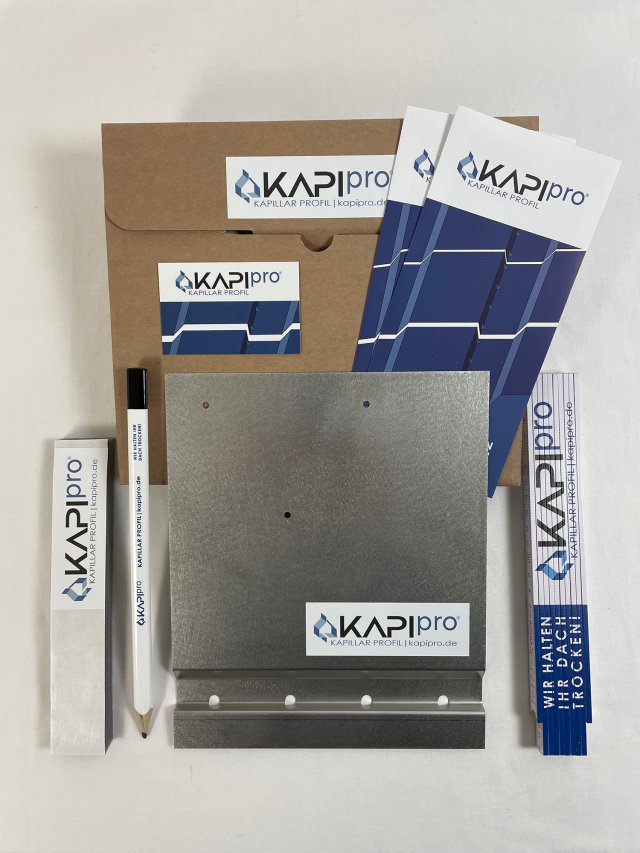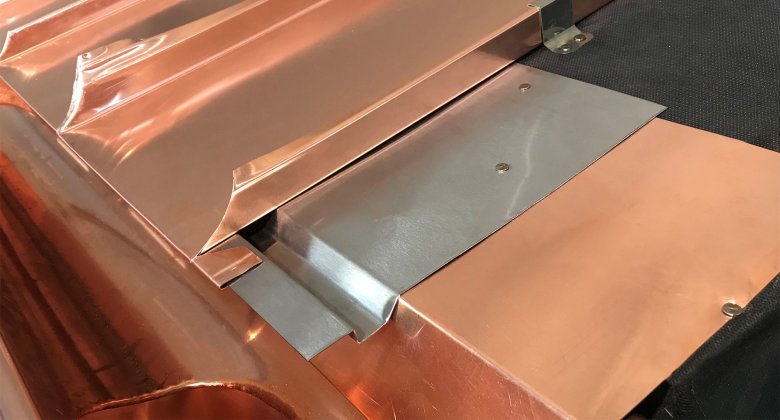
KAPIpro® Kapillarprofil Wir halten Ihr Dach trocken
Unsere Lösung ist einfach, kostengünstig und hocheffizient!
Das Edelstahlprofil unterbricht die Kapillarwirkung des Wassers und hindert es daran, über den Traufbereich zwischen Metalldach und Dachkonstruktion einzudringen. Es dient so als Feuchteschutz für das Metalldach. Durch die innovative Falzung und Perforation des Edelstahlprofils wird das Wasser in die Regenrinne abgeführt. Es stoppt die Kapillarwirkung und bietet so den höchstmöglichen Schutz vor eindringendem Wasser!
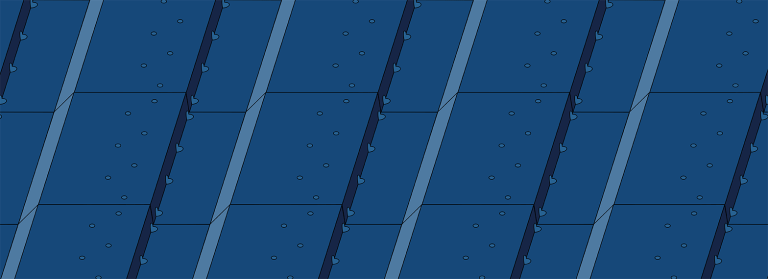
Privatperson & Endverbraucher
Ein immer wiederkehrendes Problem bei Doppelstehfalzdächern ist eindringendes Wasser. Trotz Ausbildung der Traufe nach den Richtlinien und heutigem Stand des Klempnerregelwerks. Grund ist die Kapillarwirkung, der Saugeffekt des Wassers. Durch seine innovative Falzung und Perforierung, unterbricht unser Kapillarprofil diesen Saugeffekt und fungiert als Feuchteschutz.
Gutachter & Architekten
Unser KAPIpro Kapillarprofil ist am Doppelstehfalzdach vielfältig einsetzbar. Es fungiert als Feuchteschutz in unterschiedlichen Bereichen, wie Traufe, Gaube, vertiefte Kehle uvm. Um eine höchstmögliche Trockenheit im Traufbereich des Metalldaches zu erreichen, ist das Einbringen des KAPIpro Kompribands im Stehfalz unbedingt erforderlich.
Markus Riedl und Team Wir sind ausgezeichnet!
Als mittelständische Firma im Herzen von Oberbayern agieren wir, nach Firmengründung, als Händler für das, vom Firmengründer Markus Riedl entwickelte, KAPIpro Kapillarprofil und dazugehörige Kompriband. Wir beliefern Handwerksbetriebe, Tinyhouse-Hersteller und Modulhaus-Hersteller. Architekten, Bauträger, Sachverständige und Planer lassen unsere Kapillarprofil einbauen.
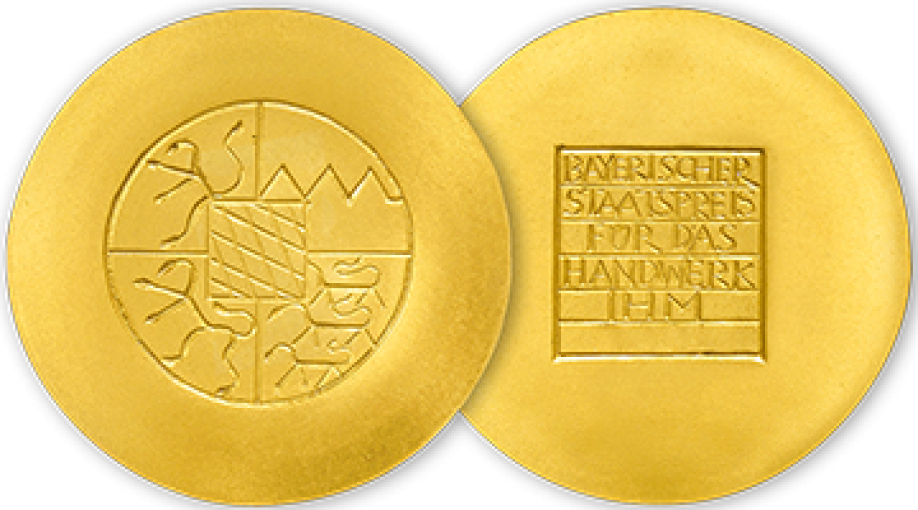
für das Handwerk 2022

Innovation Handwerk 2022
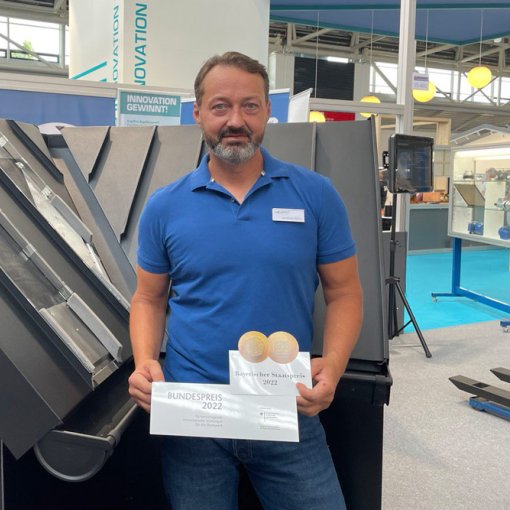
Funktionsweise und Montage erklärt
JETZT UNVERBINDLICH ANFRAGEN Gerne beantworten wir offene Fragen und geben Preisauskünfte
NOCH UNSICHER? Bestellen Sie unsere Musterbox und lassen Sie sich von der Qualität überzeugen.
KAPIpro® Musterbox
1x Kapillarprofil-Muster
1x Kompriband-Muster
1x Meterstab „KAPIpro“
1x 3-Kant-Multigrafstift „KAPIpro“
3x Prospekt
1x Visitenkarte
€ 12,00
(inkl. MwSt.)
Versand wird beim Checkout berechnet
